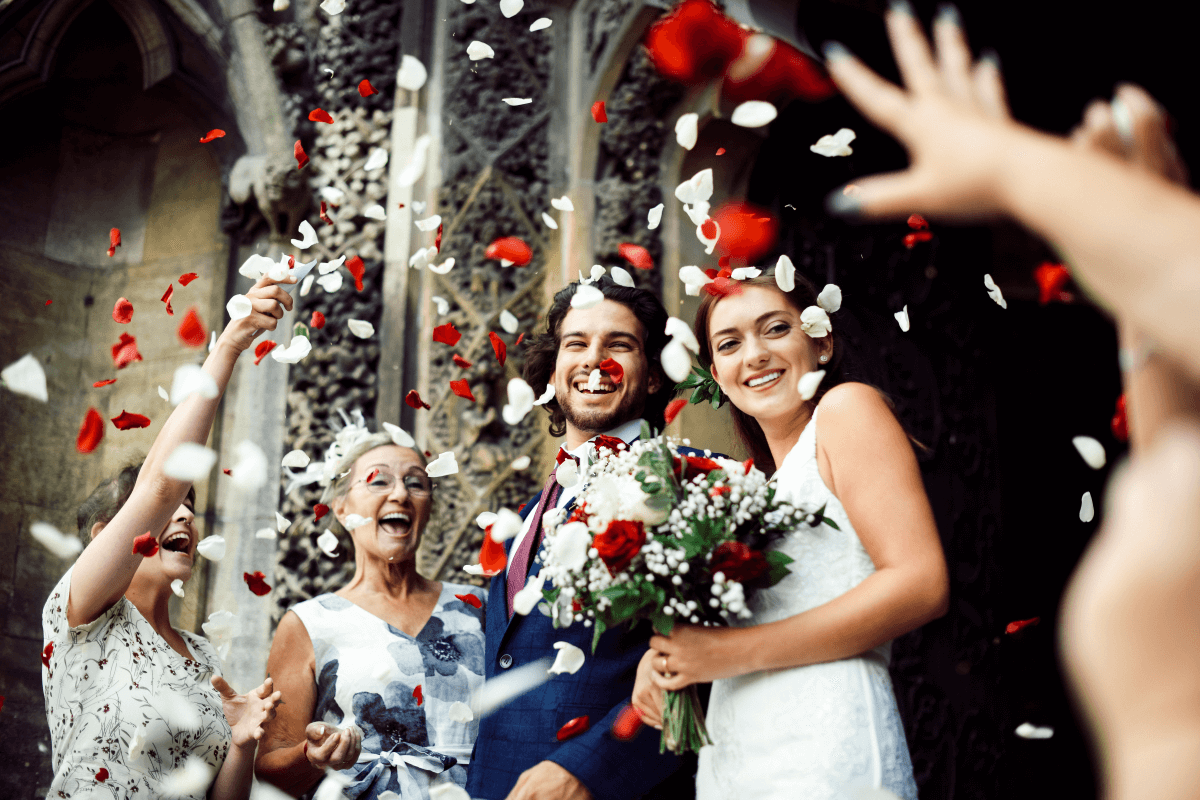Weddings are exciting and full of joy, but they can also come with high costs. Whether you dream of a grand event or prefer a smaller, more intimate ceremony, setting a realistic budget is important. Understanding the key expenses involved will help you plan ahead and avoid any unexpected financial stress. This guide will help you understand the average costs of a wedding, what factors influence the price, and how you can save money.
What is the average wedding budget?
In the UK, the average wedding costs around £20,775. However, the actual cost can vary depending on your choices, the location of your wedding, and the number of guests you invite. Some couples may spend less, while others may choose to spend more. Rising wedding costs are becoming a concern for many, as inflation and higher demand for venues and services drive up prices. It’s important to set a budget that works for you and reflects your priorities for the big day.
What are the main costs of a wedding?
There are several costs to consider when planning your wedding. Here are the key expenses that most couples will face:
- Venue & catering: The venue is usually the largest expense. Renting the space and paying for catering can cost between £8,000 and £10,000, depending on the location and size of the venue. The more guests you have, the higher your catering costs will be.
- Photography: Having a professional photographer to capture your special day is essential. Their services can cost anywhere from £1,000 to £2,500, depending on their experience and the package you choose.
- Beauty & fashion: Wedding dresses can range from £1,000 to £3,000. Grooms typically spend less, and hair and makeup for the bride and bridal party can add another £100 to £300 per person.
- Entertainment: Entertainment costs can vary widely. A DJ may cost between £400 and £1,200, while hiring a live band could cost £1,500 or more. Entertainment is key to setting the tone for the celebration, so it’s important to budget for this.
- Decor: Flowers, centrepieces, and other decorations can cost anywhere between £500 and £2,000. The final cost depends on the venue size, your theme, and your preferences.
- Cake: Wedding cakes range from £250 to £1,000, depending on the design and the number of guests. This cost can increase if you choose a custom or elaborate design.
Factors that influence the cost of a wedding
Several factors can greatly affect how much your wedding will cost. Here are the most common ones:
- Day of the week: If you choose a weekday instead of a Saturday, you can save a lot of money. Wedding venues and suppliers often offer lower prices during the week because there is less demand.
- Month of the year: The time of year you choose for your wedding can affect the cost. Summer weddings (especially in June, July, and August) are usually more expensive, while winter weddings tend to be more affordable.
- Region: The location of your wedding plays a big role in how much it will cost. Weddings in London and the South East are often more expensive than weddings in other areas. You may want to look for venues outside major cities to save money.
- Guest count: The more guests you invite, the higher your wedding costs will be. A larger guest list means more food, more drinks, and a bigger venue, all of which add up quickly.
Ways to keep the cost of a wedding down
There are many ways to reduce your wedding costs while still making it special. Here are some ideas:
- Prioritise the essentials: Focus on the aspects of your wedding that matter most to you, like the venue or photography. You can cut back on things like fancy decorations or expensive wedding favours.
- DIY where possible: Consider making some decorations, invitations, or favours yourself. There are plenty of online resources to help you create beautiful, personalised items at a lower cost.
- Limit the guest list: Cutting down on the number of guests can help reduce catering and venue costs.
- Consider off-season: Having your wedding during the off-peak season could save you a lot. Also, booking your venue in advance can also help you take advantage of discounts.
Additional costs to consider
When planning your wedding, don’t forget to budget for extra costs. For example, travel and accommodation for guests can add up, especially if they’re are coming from far away. You should also account for tips for your wedding vendors or any last-minute expenses, like extra decorations, snacks, or transport for your guests.
It’s smart to set aside 10-15% of your total budget for unexpected costs. This will help ensure that you are ready for any surprises and keep your wedding plans on track.
Ways to afford your dream wedding
If your dream wedding seems out of reach financially, there are ways to make it happen.
One option is to consider a homeowner loan. If you own your home, you could take out a loan secured against your property to help cover wedding costs. Homeowner loans often have lower interest rates and flexible terms, making it easier to manage your repayments.
You can speak to a broker who can help you find the right loan for your needs. For more help with financing your wedding, use our Homeowner Loan Calculator to estimate your repayments or Find a Broker for expert guidance.
Conclusion
Planning a wedding can be overwhelming, but with a solid budget and understanding your financial options, it becomes much easier. By considering all the costs and exploring ways to finance your wedding, you can enjoy your special day without stressing about money. Make sure to set clear goals, communicate openly with your partner, and stay realistic about your budget.
